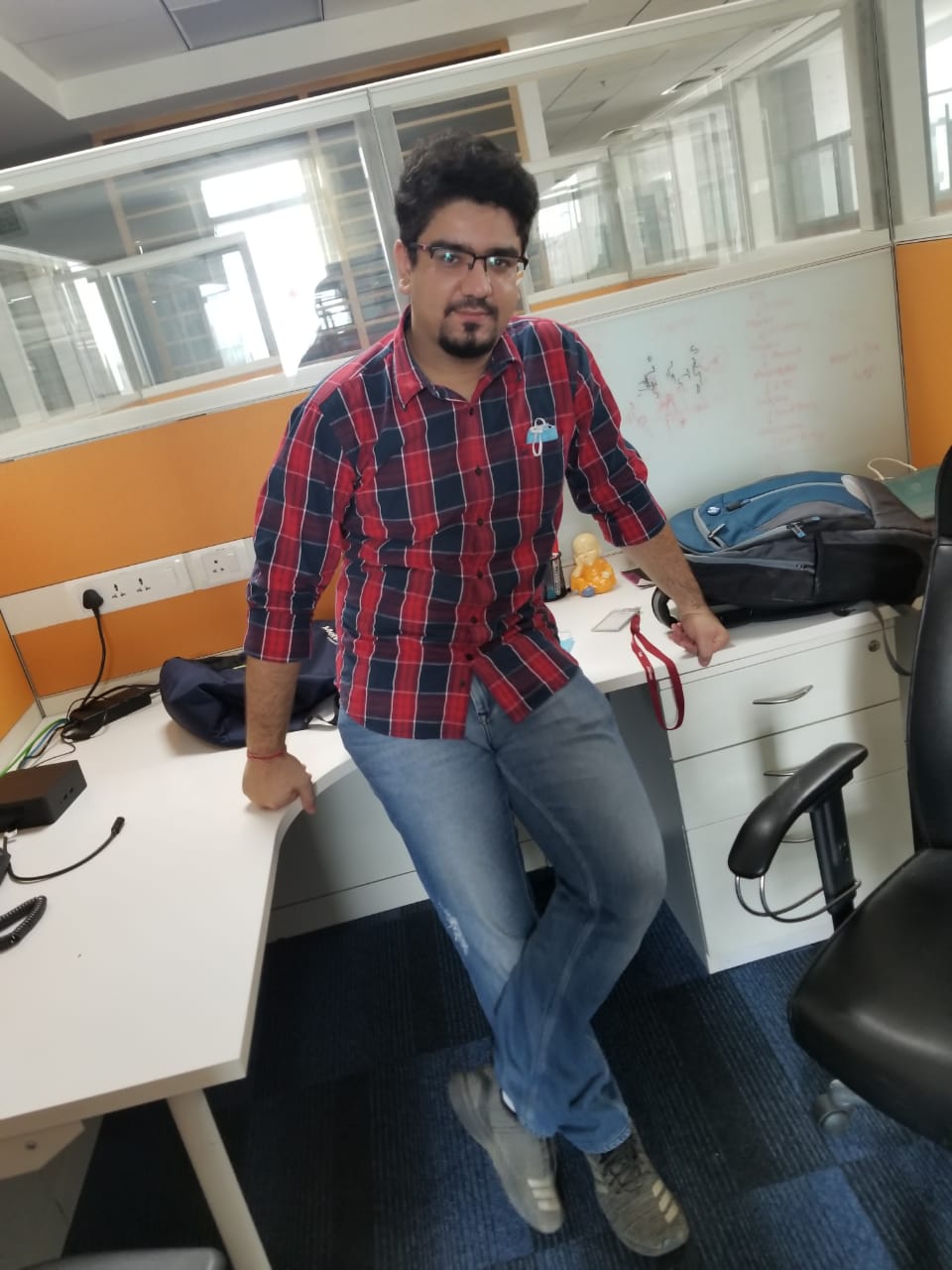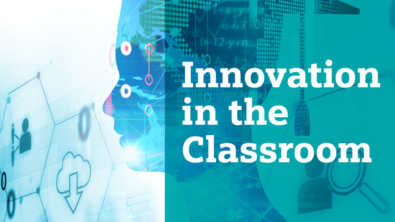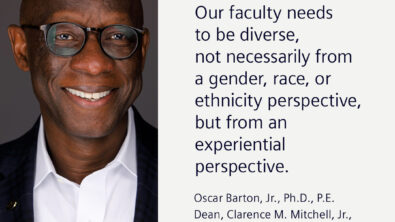Student Interns Beyond the Classroom: Aman Sharma

Aman Sharma, a current application engineering intern at Mentor Graphics, knows that the mix of his own interpersonal skills and technical know-how is crucial to thrive in the space of electronic design automation. As a sociable electronic technology student currently working in Bangalore, India, had become interested in the work at the interface of VLSI & AI and had applied to the ‘Higher Education Program’ at Mentor Graphics. Consequently he was offered an application engineering intern position. Aman is a sure-fire example of the bright talent and hard work that comes from having passion for technology. Read on to learn more about him and the projects he has been working on.
Where did you attend college, what was your major, and how did you become interested in your field of study?
I have done my bachelor’s in technology with a specialisation in electronics and instrumentation from Rajasthan Technical University (R.T.U) Kota, India. Complementing my interest in core engineering I got the opportunity to work as a plant engineer in an oil refinery in the oil & gas domain. Then to move towards core electronics, I chose to pursue a master’s degree in technology with a specialisation in Industrial electronics from Netaji Subhas Institute of Technology (NSIT) Delhi, India. During this time, I got interested in research projects at the interface of VLSI and AI, besides I also attended workshops and conferences in VLSI where I was exposed to latest technologies such as neuromorphic computing, spintronics etc. Around that time, I also applied to higher education program (HEP) on electronic systems design and verification using system Verilog at Mentor Graphics Bangalore, and this exposure was such an enriching learning experience that later next year when I was offered this very project to bridge industry-academia gap I enthusiastically accepted to be a part of it.
What was the name of the program you were in at Mentor Graphics and how long have you been with the company?
It was a Higher Education Program (HEP) which was really focused on the design and verification process of electronic systems using SystemVerilog. So, in this program we extensively worked using SystemVerilog and were also introduced to the basics of Universal Verification Methodology (UVM). The HEP constituted several smaller projects. And, currently working on this particular project it’s been around 7 months that I have been associated with Mentor Graphics.
What are 2 or 3 key things you learned while interning for Mentor Graphics?
There are many learning that I acquired at Mentor Graphics. First and foremost is corporate ethics, here I got the opportunity to learn about being a professional through this internship in a corporate setting. It exposed me to the nitty gritty of the real life of an electronics engineer: how they operate, how they manage their work, what their life is like outside of work. I learned how to take responsibility and contribute to a team so that we can productively contribute to the organization. This internship helped me a lot in maintaining a balance and making the transition from a fresh college graduate to an established engineer in corporate.
Besides learning about corporate ethics, I was also extensively exposed to the technical knowledge in the domain of VLSI. VLSI is a very complicated domain and there is a lot of technology involved encompassing comprehensive theory and a myriad number of tools. I could only learn it in bits and pieces at the college, but after being a part of Mentor Graphics. I could see the full flow of technology and convincingly comprehend how a document (specification) could methodically be converted into a hardware (an Integrated circuit (IC) chip). And it being a very elaborate process, I learned about various Mentor Graphics tools, about SystemVerilog, testbench writing using UVM, different protocols and other encompassing knowledge needed for the successful completion of this project. The technical knowledge that I gained over this short span of time is unparalleled, because I could ride the learning curve in sync with the task at hand.
And third was that, I made a lot of friends, very good friends. Two of my colleagues here at Mentor Graphics I used to work with, are now at two different companies and we are still in touch. I learned that one can strike a work life balance. Here one doesn’t feel bogged down by the incessant work on computer screens, instead can have some time off and grow as an individual. Here I did not just learn technically but also learned more about life, by gaining insights from the experiences shared by peers, letting me know how their life has been, how they landed here, and what their future aspirations are. It’s been a very enriching experience interacting with seniors and peers.
What is the most impactful/ rewarding part of working in your specific field and for Siemens?
I remember reading about Mentor Graphics and Siemens and I already knew that it was one of the leading producers of technology. In 1847, technology started with the telegraph. And right now, in 2020, the domain I am working in is electronic design automation which is impacting cutting-edge technologies like AI, IoT etc. So, if one looks at the reach of a company like Siemens, how we started way back with the telegraph and right now it is transforming human lives, I feel proud to contribute to a company that is actively leading to the growth and development of the human civilization. And if I extrapolate this to my project which is very elaborate with several design tools, as an intern who just graduated in electronics it’s mind-boggling to fathom all of this technology and be adept in all this knowledge. But here at Mentor Graphics my curiosity was nurtured and at the same time I learned how to be efficient in these tools and attain the learning. I’ve personally experienced the impact of the various learning resources, especially ones available online, offline, and learning from professors and peers. There is so much knowledge out there at our fingers today.
And lastly, how is your team adapting to the COVID-19 pandemic and how is that affecting your work?
This coronavirus situation is far more serious than just being a financial/ economic crisis. It’s more about how we are going to cope up with our day to day chores and to a larger extent how we will manage our lives together from now on. From a work perspective, whether I work from the office or at home, I can be equally productive. We have already had the software for video and audio connections to interact with my team. So connectivity has not been an issue at all, individual presence of a person is missing. The fabric of social contact has changed and the essence of real human interaction is missing. This is not a good thing to live with because we know that we humans are social animals and we know we need to connect and interact with each other rather than just a screen. The repercussions of this newly adapted lifestyle are going to be huge, but like everyone else we are trying to adapt to this situation thrown at us and waiting to see how the future unfolds. At the moment everyone is trying to recuperate and come to terms with the situation. Hats off to the people who have been working day and night outside the comfort of their homes so that we can control this pandemic and get back onto the usual routine that we had back in January 2020. In a few months everything has changed so drastically and has had such a humongous impact on all of mankind, never before I felt so vulnerable as a human species. What surprises me is that such a huge world of 7 billion people could be affected at the same time and so severely by just a small event in the history. But then I would say it’s not so small after all. It has impacted us all massively but not the human spirit. Let’s bounce back.


